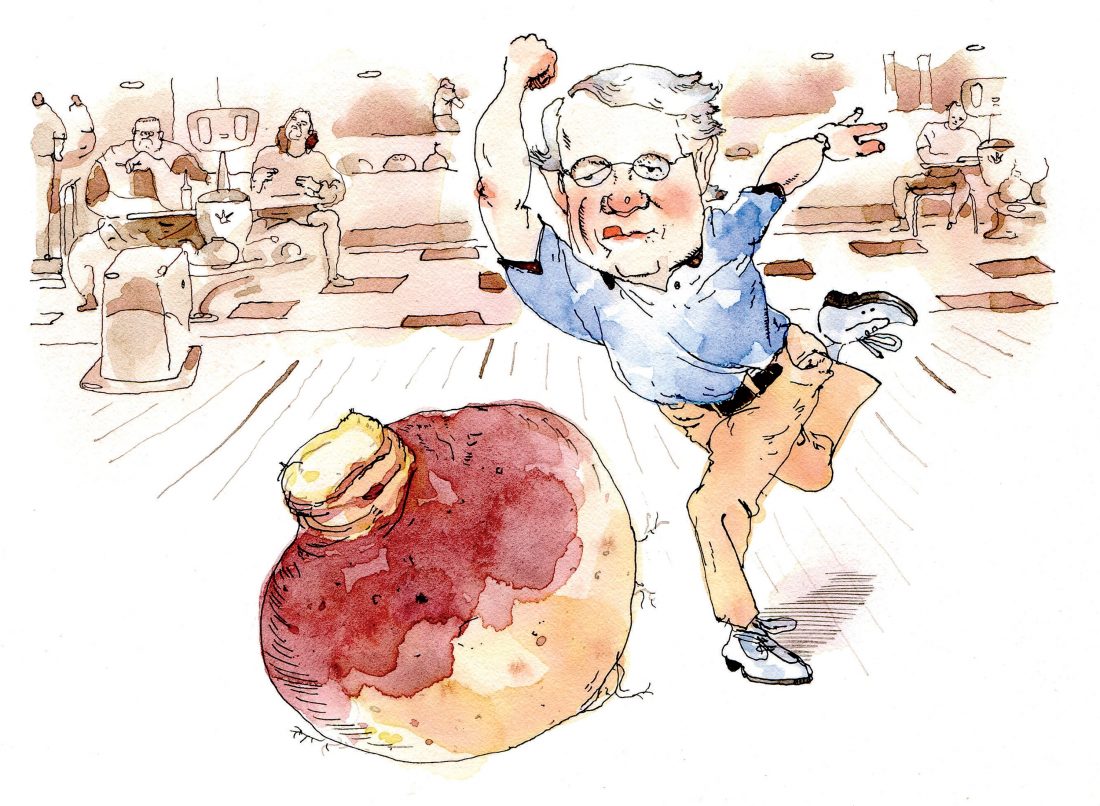“Don’t they know, when we have a banquet, we serve rare roast beef and asparagus, too?” my mother said. “They act like we don’t know how to set a table.”
This was in 1976, with Jimmy Carter freshly elected president. People, reportedly, were dreading what his ascension would do to dinner in Washington: “Do you suppose he will feed the Chinese okra?” And “What is a grit?”
“I get it about hush puppies,” Georgetown socialites were said to be saying. “But which dog do I throw my hush puppy to? The one to my left? The one to my right? The one directly under my chair? Am I supposed to bring my own dog?”
If Carter had been the first Jewish president, would people have been asking, “What is a blint?” I didn’t want to feel obliged to take up a lot of time insisting that there was nothing inherently comical about Southern food.
I brought this up to Nora Ephron, a New York style setter who served good fried chicken, and excellent bacon-rich baked beans, at parties. I said, “Grits, for example—”
“Grits,” she said, “are like San Francisco.”
I was taken aback.
“People are always trying to shove them down your throat,” she explained.
What? I could see how people might be wary of okra. But grits?
I didn’t want to bring my mother into it—people would just say mothers are like San Francisco. I considered doing an in-depth article on Ma Hull’s in Atlanta. Ma Hull, back then, ran a boardinghouse in a run-down part of town. Every day she got up at 5:00 a.m. to start cooking twelve or fifteen different down-home dishes for lunch and supper, and people flocked from all over to sit at her groaning dining-room table or in one of her parlors or out on her porch and serve themselves all they could pack away. Ma Hull, looking worn but inexorable, would keep urging more chicken on them and saying, “You ain’t got nothing on that plate.” All for $2.50. The woman was a saint.
Then too, I knew people who couldn’t bear to eat at Ma Hull’s, because they couldn’t stop thinking about how she had been laboring over a hot stove. They kept tasting pity and terror in the pole beans. They kept worrying that she would keel over in the act of pressing more corn casserole on them. I didn’t want to feel obliged to take up a lot of time insisting that there was nothing inherently tragic about Southern food.
Then I was in the kitchen of a woman who, as she happened to mention, “just missed being Miss Georgia the year Miss Georgia just missed being Miss America.” She was some cook, too. I was about to get into it with her, the question of why people regarded Southern food as so goldarned peculiar and laughable, when she held up a softball-size purple-and-white vegetable and said, “Do you know about rooterbeggers? I got my knife stuck in a rooterbegger once and couldn’t get it out.
“Look, I just did it again. What you do, you cut it in cubes, and boil it with some bacon grease, take it off and drain it completely, put a tablespoon of sugar over it. And bacon grease. And lots of pepper. When I was in grade school, they fed us rooterbeggers every day. They were cheap. You could smell rooterbeggers cooking for four miles. Five of these rooterbeggers would feed the whole school.”
Rutabaga, of course, is the preferred spelling. Google rutabaga and you will likely find a song, “Rutabaga Boogie.” At rutablogger.blogspot.com, out of Forest Grove, Oregon, you can find a picture of what seems to be a figurine with the caption “Gilhooly’s Work of the Month: ‘Frog Seducing a Rutabaga in an Overstuffed Armchair.’” You can find video of people in Ithaca, New York, taking part in the Rutabaga Curling World Championship—not on ice, with brooms. It’s really more like rutabaga bowling, but anyway a choir is singing the “Rutabaga Chorus”: “Roooot-a-baga. Rootabaga. Rootabaga,” in lieu of “Hallelujah.”
I can see why people regard rutabagas as a hoot. And they aren’t what you would call culturally Southern. Originally, they’re Swedish. In England, in fact, they go by the name of swedes. Now that’s funny. You probably hear people saying, “Aren’t you going to eat your swede?” And it’s not regarded as forcing swede down your throat. Any more than anyone should feel pressured if somebody says, “Aren’t you going to eat your grits?”
But aren’t you?








